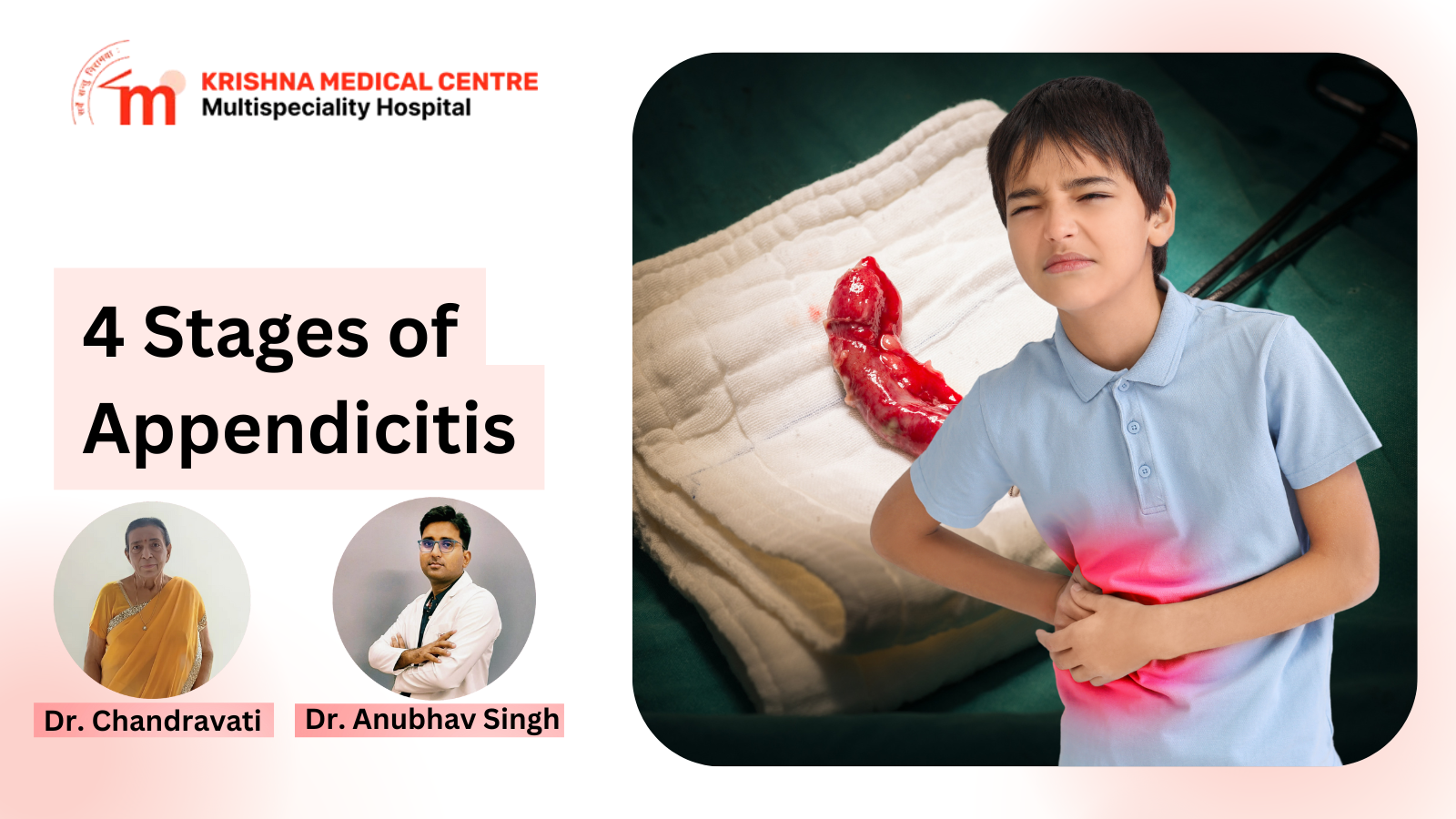

Beware of frauds: Online appointments are available only after confirmation with the hospital for any of our consultant doctors.


Appendicitis is a common but potentially dangerous condition. It occurs when the appendix, a small pouch attached to the large intestine, becomes inflamed. Though small, this organ can cause severe health problems if the inflammation is not treated in time. Understanding the 4 stages of appendicitis disease helps in recognising early warning signs, seeking timely medical care, and avoiding life-threatening complications.
This blog explains how appendicitis progresses, from mild irritation to severe infection, and what you should know at each stage.
In the earliest stage, the appendix lining becomes irritated and begins to swell.
Symptoms may include:
Doctors diagnose early appendicitis by reviewing medical history, performing a physical examination, and ordering tests such as blood counts or an abdominal ultrasound. In some cases, a CT scan may be suggested for confirmation.
If caught at this stage, treatment is usually less complicated. Antibiotics may be prescribed to control the infection, and in some instances, doctors may adopt a “watchful waiting” approach with close monitoring. Early diagnosis significantly reduces the chances of the condition progressing further.
If untreated, the inflammation worsens. The appendix becomes swollen, filled with pus, and more painful.
Symptoms may include:
At this point, antibiotics alone are rarely enough. Most patients require an appendectomy, the surgical removal of the appendix. The surgery may be performed laparoscopically (keyhole surgery) or through an open incision, depending on the severity.
Delaying treatment at this stage increases the risk of perforation, where the appendix bursts. That is why acute appendicitis is considered a surgical emergency.
When the appendix is not removed in time, it may rupture. This releases infected material into the abdominal cavity, spreading infection to surrounding organs.
Symptoms may include:
A ruptured appendix is a medical emergency. It can cause peritonitis (infection of the abdominal lining) and sepsis, both of which are life-threatening.
Diagnosis often involves blood tests and CT scans to check for the spread of infection. Surgery is required immediately to remove the appendix and clean the abdominal cavity. Patients also receive strong intravenous antibiotics and may need more extended hospital stays for recovery.
Unlike acute appendicitis, chronic appendicitis develops slowly and is less common. The appendix may remain inflamed for weeks or months, leading to repeated episodes of abdominal discomfort.
Symptoms may include:
Chronic appendicitis can be harder to diagnose because symptoms are less severe and may resemble other gastrointestinal conditions. Imaging tests such as CT or MRI scans help detect ongoing low-level inflammation.
Surgical removal of the appendix is the recommended treatment. Even though symptoms are less dramatic than in acute cases, chronic appendicitis can flare up suddenly and progress to rupture.
Recognising appendix inflammation symptoms early is key. Appendicitis can worsen within hours, progressing from mild discomfort to a surgical emergency. Prompt diagnosis and treatment:
Prevent rupture and infection
Reduce hospital stay and complications
Improve long-term health outcomes
Appendectomy, whether performed early or during later stages, is a safe and effective procedure. However, the earlier it is done, the faster and easier the recovery.
The 4 stages of appendicitis show how quickly this condition can progress: from mild irritation, to acute inflammation, to rupture, and finally, chronic or recurring cases. Each stage carries its own risks, but with timely medical attention, complications can be avoided. If you experience sudden abdominal pain, especially in the lower right side, do not ignore it. Appendicitis is one condition where waiting can be dangerous. Seek medical advice immediately to protect your health.
If you suspect appendicitis, don’t delay. At Krishna Medical Centre, Lucknow, our expert surgical team, led by Dr. Anubhav Singh, Laparoscopic and Laser Surgeon, provides advanced treatment for appendicitis, including minimally invasive laparoscopic appendectomy. Dr. Singh combines surgical expertise with patient-centred care to ensure faster recovery and reduced discomfort. Book an appointment today to receive a timely diagnosis and treatment for appendicitis. Your health and safety come first.